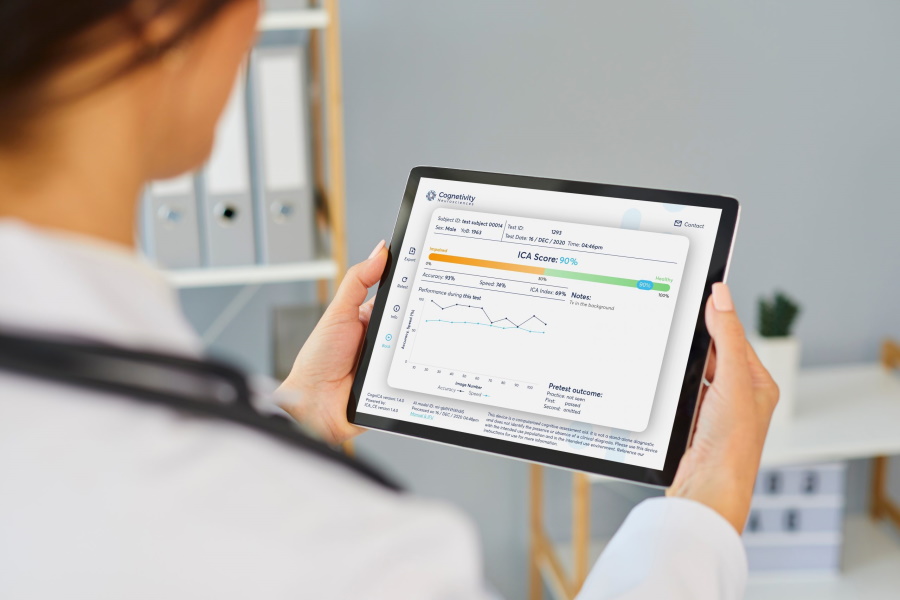FDA clears AI-powered digital test for early dementia

The FDA has approved an artificial intelligence-based test for early detection of dementia that can be carried out on an iPad in five minutes.
The CognICA Integrated Cognitive Assessment (ICA) test developed by London, UK-based company Cognetivity Neurosciences has been approved by the FDA as an alternative to traditional pen-and-paper tests with some key advantages, according to its developer.
Those include high sensitivity to detect early-stage cognitive impairment, which could allow early intervention with treatment or lifestyle changes that might help to slow down the progression of dementia.
The digital format also helps to avoid cultural or educational bias in testing, and helps to avoid scenarios where people tested on multiple occasions learn how to score better, masking increases in impairment, said Cognetivity.
It can also be carried out unsupervised, saving time and money for health systems and making it particularly suitable for assessments when access to care may be restricted, or to allow ongoing monitoring of patients without clinic visits.
The test displays images at a rapid pace on the iPad screen and asks users to identify them as either animal or non-animal.
That draws on humans' strong intrinsic reaction to animal stimuli – sometimes referred to as the 'food or fear' response – and the ability of a healthy brain to process images of animals in less than 200 milliseconds.
The test targets brain areas that are affected in the initial stages of cognitive disorders before severe memory symptoms become apparent, according to Cognetivity.
CognICA has already been approved in Europe as a CE-marked medical device, and is being used in primary and specialist clinical care by NHS trusts in the UK, but the FDA approval opens up a big new market for the software.
Cognetivity's chief executive Dr Sina Habibi said the company will now start to expand its presence in the US with the formation of regional offices to help spearhead the commercial rollout of CognICA, adding to its current locations at the Texas Medical Centre and Silicon Valley in California.
"The benefits of reaching this milestone will extend far beyond the US itself," he said. "This mark of certification will bolster our regulatory and commercial efforts in other international jurisdictions as we continue to pursue our ambitions for deployment on a truly global scale."
There is a growing number of organisations turning to digital tools and AI to improve on the traditional pen-and-paper tests for detecting dementia.
Earlier this week, for example, Altoida partnered with drugmaker Eisai and Ionian University on a five-year clinical trial to see if its AI-based software can detect neurocognitive impairments that can't be found using current tests.
Early detection is a key objective for Eisai, which along with Biogen brought the first potentially disease-modifying therapy for Alzheimer's – amyloid-targeting antibody Aduhelm (aducanumab) – to the market in the US earlier this year.













